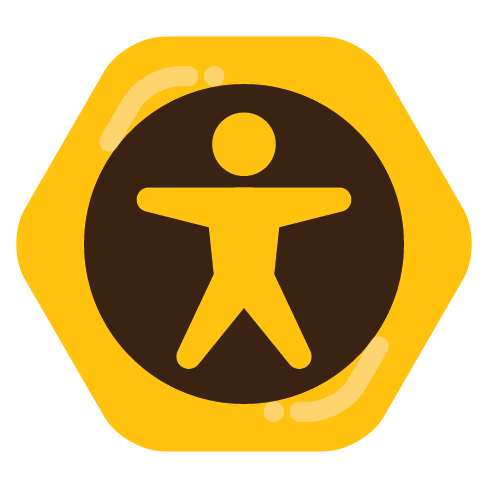

Sounds like folks have given a good number of alternatives, but I just wanted to share a resource: “Ableism/Language” by Lydia X. Z. Brown. It goes through a bunch of ableist words and suggests alternatives. :)


Sounds like folks have given a good number of alternatives, but I just wanted to share a resource: “Ableism/Language” by Lydia X. Z. Brown. It goes through a bunch of ableist words and suggests alternatives. :)


I’m so grateful for his work. I struggle to explain how “I’m tired” encompasses so much, often because I’m too tired to explain, hah. But now I can point to this article!


Quite a few folks have mentioned Outer Wilds, so I’ll add the DLC soundtrack. The titular song (Echoes of the Eye) that plays at the end of the DLC makes me burst into tears every time I hear it. But in a good way, haha.


It’s not ideal, but I use Patreon to donate to a few different folks at once (I think it still combines transactions to reduce fees…). Otherwise I usually pay the fee, if the amount I’m donating is small and I’m given the choice.
When I moved in with my partner, I had to let go of a lot food-related shame or sense of obligation. My partner has executive dysfunction stuff, I don’t have the energy for cooking - but my parents scoffed at frozen meals and takeout when I was a kid, and my dad got annoyed when something in the fridge went bad
My life got so much easier when I stopped feeling bad about finding easier ways to eat. I’m glad you’ve found options that work well for you!
Yeah, at least for types associated with low blood volume! I’ve seen some folks talk about taking a salt tablet and drinking water before they even get out of bed, but somehow I’ve never really managed to make that part of my morning routine. I do better with salty food and electrolyte drinks (Normalyte).
I’ve been doing savory oatmeal for breakfast! It’s salty for an early boost for POTS, and with quick oats I can just dump things in a bowl and microwave for a couple minutes (low spoons for CFS). Still working on collecting things I can add, like jarred sliced mushrooms and asking my partner to boil lots of eggs to keep on hand in the fridge.
I don’t have the energy to cook or make most meals, so I’m usually just helping my partner with ideas. It’s exciting to be able to come up with ideas and actually get to execute them.


I’ve tried physical therapy several times - and unsurprisingly to anyone who understands PEM, as I gained muscle strength, my endurance got worse and I slowly crashed.
My dream one day is to be able to create my own physical therapy plan. I have some ideas that revolve around some guidelines I’ve found about aerobic respiration dysfunction, mainly:
But unfortunately my health isn’t there yet. A lot of this is based on this overview of CFS/ME for physical therapists, and this part struck me:
Exercises should be initiated only after the patient can complete all ADLs/IADLs without setbacks due to PEM that result in eliminating ADLs/IADLs or other meaningful routine activities from their agenda.
I don’t really consider myself to have trouble with ADLs (Activities of Daily Living), since they’re so limited. I can basically shower, dress, and eat on my own, with appropriate aids. (I mean sometimes I skip showering and sometimes I need help putting on compression socks but it’s not bad.)
But I hadn’t heard of IADLs before.
Instrumental activities of daily living (IADL) are those activities that allow an individual to live independently in a community. Although not necessary for functional living, the ability to perform IADLs can significantly improve the quality of life. The major domains of IADLs include cooking, cleaning, transportation, laundry, and managing finances.
The only one of those I can do regularly is finances, so… Yeah. Not ready for DIY PT…
Hm… I’d actually disagree with that conclusion? I think what the author is saying there is that ableism isn’t simply a matter of the words being used. A statement that treats disabled people as subhuman isn’t okay because it avoids using these words - it’s still ableist.
From the beginning of the article (emphasis mine):
Not everyone has the ability to be mindful of how certain language originated in ableism and this reinforces it. But for those of us who can, it’s a good idea to try.